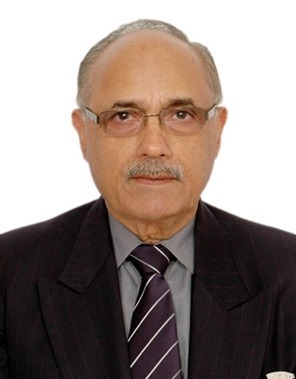
Lalit Bhasin, the chairman of the Society of Indian Law Firms (SILF) – a law firm lobby group that was formed in part to oppose the entry of foreign lawyers to India – has written in a Business Standard column that he was now in favour of allowing the phased entry of foreign law firms, barely weeks after a report quoted an unnamed government official saying that the commerce ministry was finalising a proposal to allow phased entry of foreign law firms.
Conceding a long-made argument by foreign law firms, Bhasin said it was “unlikely” that litigation lawyers would be adversely affected by the entry of foreign law firms.
He added that in the last 20 years the legal profession has “grown in stature” and was better placed to compete with foreign law firms “subject to the approval” of the Bar Council of India (BCI):
We suggest a phased sequential approach for entry of foreign legal consultants and law firms into India over a period of five to seven years.
Under Phase I, there is a need to reform the environment for domestic firms. This would include removal of difficulties in the LLP format. The Bar Council of India must clarify that practice of law in LLP format is permissible. There has to be clarification from the Income-Tax department that conversion of partnership firms to a LLP is not a taxable event. Bar Council rules need to be amended to permit issue of firm brochures, websites, directory listings, sponsorship of events, and other means of market development and information dissemination for a firm.
After completion of Phase I, foreign lawyers and foreign law firms may be permitted to have presence in India subject to certain conditions, such as prescribed qualification criteria, practise only their "home country" law, prohibited from practising, directly or indirectly, law of India. In the third phase, foreign law firms and lawyers may be allowed to practise, directly or in joint venture with Indian firms, in certain areas of law of India, subject to disciplinary jurisdiction of the Bar Council. Among other things, this has to be on a reciprocity basis - the ability of Indian lawyers to practice in the foreign jurisdiction on similar terms and conditions.
Bhasin has been one of the most vocal and unequivocal opponents of the entry of foreign firms, though in 2012 he was more pragmatic than the BCI view that foreign lawyers should not even be allowed to fly-in and fly-out of India for business.
In another column in the Business Standard today, Amarchand Mangaldas Delhi senior partner Pallavi Shroff made a similar argument, concluding that several issues, such as limiting professional misconduct liability and ensuring the foreign law firms would be subject to the jurisdiction of the Advocates Act and BCI, still stood in the way of the growth of “truly large-scale and global Indian firms”.
She also added that the restrictions on law firm websites should be removed to create a level playing field.
She concluded that “until some of these issues are resolved, the question of opening up of legal sector to foreign law firms is premature”.
threads most popular
thread most upvoted
comment newest
first oldest
first
Advertising would have meant that newer Indian forms would have been able to showcase their strength to the detriment of the few large players who do not need any advertising.
LLP clarification was actually sought by Trilegal before being buried by these large players as they do not ever want to migrate to LLP structure.
Tax clarification was provided in the budget but these large players, for obvious reasons, say (and will keep saying) that this clarification is not sufficient.
Access to capital... well this makes me laugh. Please see recent disclosures of the Shroff family and consider if these firms really need any more money!
it is time that the younger lot let the law ministry and possibly Namo know that the overwhelming majority wants the markets to open-up.. then lets see if the government protects the greed of a few as against the needs of many more Indian citizens..
1 they will pay more to the young lawyers.
2. They will being in professionalism
3.They will end the feudal system prevalent in the present law firms
4. The old system will give way to the new system .
We should resist all change no matter how good it may be .
I completely agree do not allow foreign law firms at all,
threads most popular
thread most upvoted
comment newest
first oldest
first